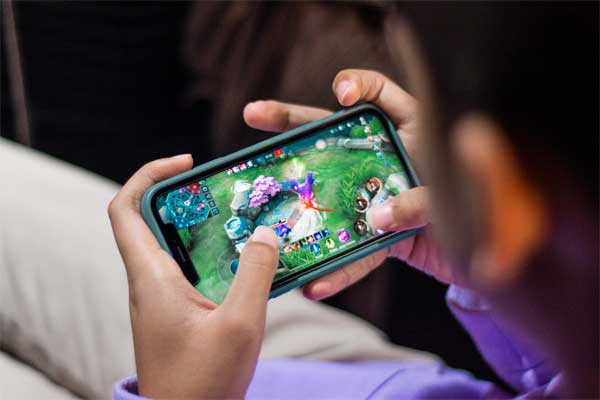In recent years, Norway has solidified its position on the global map as a hub for digital innovation, particularly in the realm of mobile gaming. The country’s stunning landscapes and rich cultural heritage, combined with a highly tech-savvy population, have created a unique and fertile ground for the mobile gaming industry to flourish. This article delves into the evolving landscape of mobile gaming in Norway, examining its growth, the key players, the latest trends and innovations, the impact of social media, and what the future holds for this vibrant sector.
Exploring Norway’s Mobile Gaming Landscape
Norway’s mobile gaming landscape is as diverse as it is dynamic. With a high smartphone penetration rate, a vast majority of Norwegians engage with mobile games, spanning various genres from strategy and puzzle to action and adventure. This widespread engagement is supported by robust digital infrastructure, enabling seamless gameplay and connectivity. Moreover, the government’s supportive stance on digital entertainment has fostered a conducive environment for game developers. As a result, both indie developers and established gaming studios have thrived, contributing to an eclectic mix of mobile games. Mobile gaming has not only become a popular pastime among Norwegians but also a significant part of the country’s digital culture.
The Rise of Mobile Gaming Among Norwegians
- The ascension of mobile gaming in Norway can be attributed to several factors. Firstly, the proliferation of smartphones and high-speed internet has made gaming more accessible to a broader audience.
- Secondly, the changing lifestyle patterns, with people seeking entertainment that fits into their increasingly mobile and busy lives, have made mobile games a go-to option. Thirdly, the social aspect of mobile gaming, where players can connect, compete, and collaborate regardless of their physical location, has appealed to the inherently social nature of Norwegians.
- Additionally, the onset of the COVID-19 pandemic accelerated the growth of mobile gaming as individuals turned to digital platforms for leisure amidst lockdowns and social distancing measures.
Key Players: Who’s Shaping Norway’s Mobile Scene?
Norway’s mobile gaming scene is shaped by a vibrant mix of developers, ranging from indie outfits to globally recognized studios. Among them, companies like Funcom and Dirtybit stand out for their innovative titles and significant contributions to the mobile gaming landscape. Funcom, known for its immersive MMOs and adventure games, has successfully ventured into mobile gaming, bringing its expertise in storytelling and world-building to smaller screens. Dirtybit, on the other hand, has achieved international fame with its multiplayer racing game, Fun Run, showcasing the potential for Norwegian games to captivate a global audience. These key players, along with a host of other talented developers, are pivotal in driving the evolution and expansion of Norway’s mobile gaming sector.
Trends and Innovations in Norwegian Mobile Games
Innovation is at the heart of Norway’s mobile gaming industry, with developers continuously exploring new technologies and gameplay mechanics to enhance the gaming experience. Augmented reality (AR) and virtual reality (VR) have been gaining traction, offering immersive experiences that blend the digital and physical worlds. Social gaming is another prominent trend, with games integrating social media elements to facilitate community building and player interaction.

Furthermore, environmental and educational themes are increasingly prevalent, mirroring Norway’s societal values of sustainability and lifelong learning. These trends not only reflect the ingenuity of Norwegian developers but also their responsiveness to global technological advancements and player preferences.
The Impact of Social Media on Mobile Gaming Trends
Social media has significantly influenced mobile gaming trends in Norway, serving as a powerful platform for discovery, promotion, and community engagement. Games that incorporate social media elements, whether through direct integration or companion apps, tend to enjoy higher engagement rates and virality. Social media also enables developers to receive direct feedback from players, fostering a sense of community and loyalty. Influencers and gaming communities on platforms like Facebook, Twitter, and Twitch play a crucial role in shaping players’ perceptions and choices, highlighting the symbiotic relationship between social media and mobile gaming. This dynamic interaction continues to drive the popularity and evolution of mobile games in Norway.
Looking Ahead: The Future of Mobile Gaming in Norway
The future of mobile gaming in Norway looks promising, with continued growth anticipated in both the development and consumption of mobile games. Emerging technologies like 5G, cloud gaming, and AI are expected to further revolutionize the mobile gaming experience, offering new possibilities for gameplay and interaction. The increasing focus on cross-platform play also suggests a future where mobile games are more integrated with other gaming systems, providing a seamless gaming experience. Moreover, as the global gaming community becomes more interconnected, Norwegian developers have the opportunity to make an even greater impact on the international stage. With a strong foundation and a culture of innovation, Norway’s mobile gaming industry is well-positioned to continue its upward trajectory.
Norway’s mobile gaming landscape is a testament to the country’s innovative spirit and technological prowess. From the rise in mobile gaming popularity among Norwegians to the key players and trends shaping the industry, it’s clear that this sector is not just thriving but also evolving in exciting ways. The integration of social media has further amplified its reach and impact, creating a vibrant community of gamers and developers alike. As we look to the future, the potential for growth and innovation in Norway’s mobile gaming industry appears boundless, promising an exciting journey ahead for gamers and developers alike.
